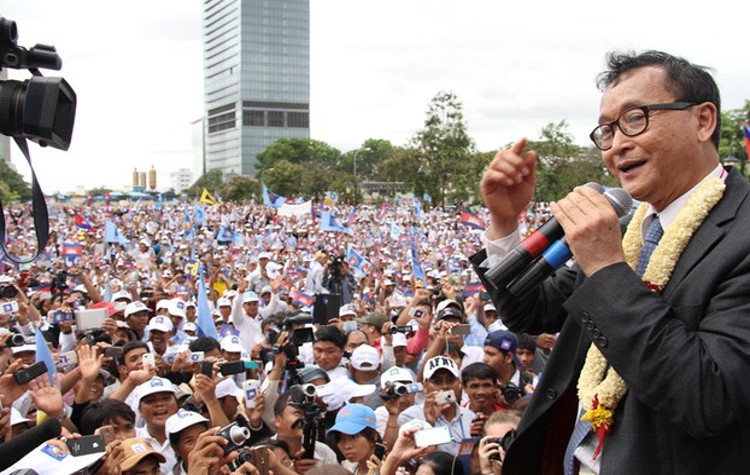(Bangkok, 22 February 2017) – The Asian Forum for Human Rights and Development (FORUM-ASIA) expresses serious concern over the passage of amendments to the Law on Political Parties by the National Assembly on Monday. The amendments, if approved by the Senate, would allow the Supreme Court and the Ministry of Interior to dissolve any political party or ban any political party leader from political activity on vaguely defined grounds. 31 out of 76 political parties in Cambodia would risk dissolution.1 The amendments would further restrict democratic space in Cambodia, in particular in the lead up to the local elections in June this year, and the general elections in 2018.
The amendments were tabled and made available to the public in early February 2017. The expedition of the enactment process in the National Assembly left no space for public participation. The fact that 55 members of the National Assembly from the opposition party boycotted the session shows the lack of support for the decision.
The amendment to Article 18, which describes that a party must fill a vacant position of a party leader within 90 days, in combination with a new amendment which states that political parties will be dissolved if their leaders are convicted of domestic crimes, are seen as an attack on the opposition party, Cambodia National Rescue Party (CNRP). The amended law forced Sam Rainsy, former president of the CNRP, to resign on 11 February 2017 given that he has many pending cases registered against him in Cambodia and has lived in exile since 2015. The CNRP had been planning to hold its new congress to elect a new leader in 2018, but this would now be deemed too late.
Furthermore, the amendment to Article 44 states that the Supreme Court can disband any political party which “causes separation, sabotages democracy, undermines the state’s security, creates forces, incites people to national disharmony and is manipulated by foreign governments or political parties” and can ban political leaders from the disbanded parties from politics for five years.
The passage of the amendments to the Law on Political Parties adds more concerns to the deteriorating situation in Cambodia. In the past two years, a series of repressive laws has been enacted, namely the Law on Associations and NGOs (LANGO), the Trade Union Law, and the Telecommunications Law. Human rights defenders and civil society organisations are subjected to notorious judicial harassment. The prosecution of Tep Vanny2, a prominent land rights activist from Boeung Kak Lake and the arbitrary detention of five human rights defenders, Ny Sokha, Nay Vanda, Yi Soksan, Lim Mony, and Ny Chakrya3 are clear examples of such harassment. Genuine democratisation in Cambodia will only be possible through the full protection of all fundamental freedoms, including the rights to freedoms of expression and association.
‘In light of the upcoming local elections in 2017 and general elections in 2018, the Government of Cambodia, led by the Cambodian People’s Party (CPP), should uphold all democratic principles and assure a level playing field for all actors, instead of limiting space for political participation. The rights to freedoms of expression and association are at the heart of a pluralistic and vibrant democracy,’ says John Samuel, Executive Director of FORUM-ASIA.
The next stage of the amendments will be in the Senate before the final approval of the legislation by the King of Cambodia. FORUM-ASIA urges the Senate to critically re-examine the amendments to Law on Political Parties and make progressive recommendations to ensure that these amendments are in compliance with international human rights standards particularly Cambodia’s obligation as a state party to the International Covenant on Civil and Political Rights (ICCPR), which it ratified in 1992.
Article 3 of Paris Peace Accords4 requires signatories to ‘to promote and encourage respect and the respect of man and fundamental freedoms in Cambodia as enshrined in the relevant international instruments and relevant resolutions of the General Assembly of the United Nations to, inter alia, to prevent the recurrence of human rights violations.’ FORUM-ASIA reiterates its call to the international community, particularly the 18 state signatories to the 1991 Paris Peace Accords, to fulfil their obligations specially in the context of the upcoming elections. The international community must play its role to safeguard democratic space for public and political participation in Cambodia.5
***
For a PDF version of the statement, please click here.
For further information, please contact:
– East Asia Programme – [email protected]




